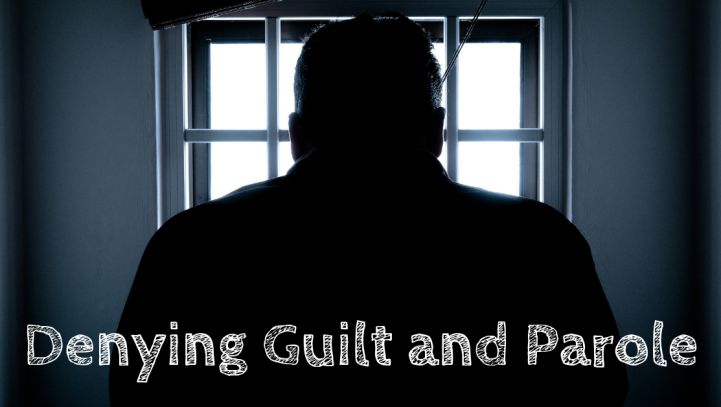Denying Guilt and Parole
Does Denial Impact Parole?
You have been convicted of a crime you didn’t commit, your appeals are exhausted, and you serve time in prison. Part way through, you’re eligible for parole. You hope finally to get out and put this behind you.
The parole board give you their decision, but parole is refused, seemingly because you refuse to accept your guilt. What can you do?
The Parole Board
The role of the Parole Board is to decide if it is safe to release a person. They mainly make decisions in relation to life prisoners, extended sentences, or offenders of particular concern such as terrorists or child sex offenders; they do not make a release decision about all prisoners. They also decide whether to re-release someone who has previously breached their licence conditions.
They will consider one question: whether the prisoner is a serious risk to the public.
Those who are a serious risk will remain in prison, and those who are not will be released on licence, serving the remainder of their sentence in the community under the watch of the Probation Service.
How Does The Parole Board Decide Who To Release?
To assess any risk to the public, the Board will consider many factors.
They may look at the circumstances that led to the offence being committed — such things as lifestyle, including any drug or alcohol use or abuse, relationships and acquaintances, living conditions and other factors. The Board will consider if those factors have changed.
They may also look at the circumstances the prisoner will be released into. Will they have a family network, a place to live, or a job? These things are likely to help the Board feel that any risks can be effectively managed outside of prison.
They will also look at a person’s record in prison. This includes their behaviour, their engagement with the opportunities in prison, and their relationship with their Offender Manager.
It is at this stage that problems can arise for people who deny they committed any offence.
Various programmes available to help offenders confront and manage their behaviour require them to accept guilt because the programmes are built around gaining insight into the offence.
This can be an effective bar to those who deny their guilt from taking part in these schemes and disadvantage them in front of the Parole Board.
How Do The Parole Board Make Their Decisions?
The Parole system is complicated and can take six months or more. The process begins with a ‘dossier’ of information being considered by a member. This stage is called the Member Case Assessment.
The case can then have one of four outcomes: the prisoner is released, transferred to an open prison, an oral hearing is directed, or the prisoner is refused parole.
An oral hearing is precisely that: a hearing that happens face to face. The Parole Board wants to hear evidence from the prisoner and other witnesses to find out more about the factors above.
An oral hearing can end in any of the other outcomes that the Member Case Assessment can.
What Happens If I Deny That I Am Guilty?
This can be tricky for a Parole Board because one of the ways in which they assess risk is looking at the insight a prisoner can demonstrate into their offending. When a person says they have done nothing wrong, it’s difficult to show any insight.
However, a denial of guilt is not, and should not be treated as an automatic bar to parole. This was made clear in the leading case of R (Owen Oyston) v The Parole Board [2000] EWCA Crim 3552.
A denial of guilt can be taken into account when assessing risk, but the court in Oyston made clear that it was only one factor to take into account, and the Parole Board should consider it in the context of all the evidence.
Do People Who Deny Guilt Face A Disadvantage At Parole Hearings?
The court in the Oyston case set out the ways in which a person who maintains their innocence may be at an evidential deficit compared to those who accept they committed an offence.
Those who maintain they are innocent are unlikely to express any, or any real, remorse or contrition. They are unlikely to express sympathy for any victims, except that they may express general sympathy for them having been the victim of a crime.
They will probably not have taken part in prison programmes designed to address the cause of the offending, because those programmes require acceptance of guilt.
They may, in every other way, be a model prisoner, and they may show a willingness to engage in those programmes but be unable to by virtue of their denial of guilt.
The Parole Board may, in these cases, have a fear that they will have no motivation to obey the law in future, and prisoners who deny guilt can only undertake not to do what they maintain they have not already done.
What Happens If I Have Been Denied Parole?
Decisions of the Parole Board can be challenged by way of judicial review. This means asking a judge to review the decision. This is not a re-hearing and can only be used where the law has been wrongly applied, some has gone wrong in the procedure, or discretion has been exercised unreasonably.
How We Can Assist
If you need specialist advice, then get in touch with Oliver Gardner on 01618729999 or at oliver.gardner@howardssolicitors.com and let us help. We can advise on all aspects of your case.




